Trying to stay cool and dry while sleeping in the summer can be very difficult for hot and sweaty sleepers. If you have this problem too I recommend you to try bamboo sheets. The lightweight fabric and its thermal conductivity can make you feel a sense of coolness all night long.
How Bamboo Sheets are Made
Bamboo sheets are crafted from the fibers of the bamboo plant, using a process that involves several steps to transform the raw material into soft and luxurious bedding. Here's a glimpse into how bamboo sheets are made:
Harvesting Bamboo
Select mature bamboo between 3 and 5 years old. During the dry season, use a sharp tool to cut close to the ground.
Bamboo Pulp Extraction
After harvesting the bamboo culms, the bamboo is crushed and soaked to extract the natural cellulose fibers through an environmentally friendly enzymatic process, followed by a chemical or mechanical process that dissolves the cellulose into a viscous substance.
Spinning Into Yarn
Once the bamboo cellulose has been isolated, it will be spun into yarn through advanced spinning technology.
Weaving Process
The yarn is woven into sheets using traditional weaving techniques. Advanced looms and specialized weavers are combined to create a variety of materials with different textures, such as smooth satin to luxurious twill.
Final Step
Once the weaving is complete, the fabric undergoes a finishing process that includes bleaching, dyeing, and softening to enhance its look and feel.

Types of Bamboo Bed Sheets
There are a wide variety of bamboo fiber bed sheets on the market. Each type of sheet has been uniquely designed to meet different preferences and needs, ensuring that everyone can find the perfect sheet for a restful night's sleep. Let's explore these options:
- 100 Bamboo Sheets: These sheets are made from 100% Bamboo Viscose, which offers great softness and moisture-wicking ability.
- Bamboo Blend Sheets: By combining bamboo fibers with materials such as cotton or microfiber, the sheets are both breathable and hypoallergenic with enhanced durability.
- Organic Bamboo Sheets: Organic bamboo sheets are made from bamboo that is made without the use of harmful pesticides or chemicals.
- Bamboo Lyocell Sheets: Bamboo fiber sheets are made by converting bamboo pulp into ultra-fine fibers with a silky smooth texture and a great drape.
- Sateen Bamboo Sheets: Bamboo fiber yarns are woven into cloth according to the satin weave method, which has a glossy and silky feel.
- Twill Bamboo Sheets: Twill bamboo fiber sheets are made using the twill weave method. It makes the comforter more durable while having a good soft feel and elasticity.
- Flannel Bamboo Sheets: Facecloth Bamboo Fiber Sheet Its brushed texture delivers a soft, plush feel. It keeps you warm without sacrificing breathability.
Pros of Bamboo Sheets
When it comes to bamboo sheets, numerous advantages make them a popular choice for bedding. Let's explore the benefits of opting for bamboo sheets in your bedroom:
Comfort
Bamboo fiber sheets are available in a variety of fabric types, including viscose, lyocell, and a variety of blends, each of which offers a different level of softness and breathability. For example, sheets made from 100% Bamboo Viscose have the softness and moisture-wicking properties to keep you dry and comfortable all night long.
Eco-Friendliness
From the bamboo harvesting process to the treatment of bamboo fiber sheets without the use of harmful chemicals and pesticides. All these processes are in line with the requirements of sustainability.
Durability
Bamboo sheets, especially twill-woven bamboo sheets, are not only durable and easy to care for, but also wrinkle-resistant.
Hypoallergenic
Research has shown that bamboo itself contains a natural antimicrobial substance called bamboo kun, which prevents bacteria from growing and multiplying. Bamboo fiber sheets are less likely to attract dust and mites, making them a safe choice for asthma and allergic rhinitis sufferers.
Climate Adaptability
Bamboo fiber can automatically adjust its heat-retaining and heat-dissipating properties according to the environment and body temperature changes. In the hot summer months, bamboo sheets help to dissipate body heat and keep the surface of the sheets cool, while in the cold winter months, they retain heat and help to keep you warm.
Souverhome offers quality bamboo sheet sets, bamboo fitted sheets, flat sheets, and bamboo duvet covers made from 100% bamboo viscose.
Cons of Bamboo Sheets
While bamboo sheets offer numerous benefits, it's important to consider some potential drawbacks before making a purchase. Understanding the downsides can help you make an informed decision based on your specific needs and preferences.
Wrinkle Prone
Bamboo sheets tend to wrinkle more than other linens, especially if not removed immediately from the dryer. This may require extra care when laundering to keep the bed looking smooth.
Special Care
Unlike traditional cotton sheets, bamboo sheets often require special care. Some may need to be washed in cold water or on a gentle cycle, and certain detergents or fabric softeners should be avoided to prevent damage.
Initial Cost
Compared to standard cotton sheets, bamboo sheets may come with a higher initial cost. While they offer long-term durability, the upfront investment might be a consideration for budget-conscious buyers.
Bamboo Sheets vs Other Types
Each sheet material has different features and benefits, evaluating bamboo fiber sheets with other available materials. You can choose the one that you like best and that matches your sleeping habits.
|
Attribute |
Bamboo Sheets |
Cotton Sheets |
Linen Sheets |
Silk Sheets |
|
Softness |
Very soft, feels like cashmere or silk. |
Softness varies; generally comfortable. |
Initially coarse, softens with washing. |
Extremely soft with a luxurious feel. |
|
Durability |
Durable but requires careful maintenance. |
Highly durable, especially high-quality cotton like Egyptian cotton. |
Extremely durable; strong fiber. |
Delicate, requires careful handling. |
|
Breathability |
Highly breathable and moisture-wicking. |
Good breathability. |
Excellent breathability and moisture-wicking. |
Good, helps regulate temperature well. |
|
Moisture Wicking |
Excellent moisture management. |
Less effective than bamboo and linen. |
Very good moisture-wicking abilities. |
Moderate; depends on weave. |
|
Eco-Friendliness |
Generally sustainable but processing can be chemically intensive. |
Requires significant water and pesticides unless organic. |
Very eco-friendly; requires fewer resources and no chemicals. |
Sustainable but production is resource-intensive. |
|
Maintenance |
Requires gentle wash and care. Might be prone to wrinkling. |
Generally easy to care for; robust against washing. |
Can be washed easily, becomes softer over time. |
Requires specialized care and gentle washing. |
|
Hypoallergenic |
Naturally hypoallergenic and antimicrobial. |
Less so unless specifically treated. |
Naturally hypoallergenic. |
Naturally hypoallergenic. |
|
Cost |
Generally more expensive than standard cotton. |
Varies widely; high-quality cotton like Egyptian is expensive. |
Typically more expensive than cotton but can vary. |
Most expensive among the options. |
|
Climate Adaptability |
Excellent for all climates; cooling in summer, warm in winter. |
Good, but may not be as cooling as bamboo. |
Excellent in both warm and cool climates. |
Excellent thermal regulation. |
Read more: Organic cotton vs bamboo vs lyocell
Conclusion
The eco-friendliness, luxurious comfort and wide selection of bamboo fiber sheets make them the choice of those seeking restful and sustainable sleep. Understanding the pros and cons of bamboo fiber sheets and comparing them to other types, can give you a good reference when purchasing sheets.
If you need to buy quality bed worksheets, you can contact us at Souverhome. or you can visit our website to browse for your favorite type of home sheets.
FAQ
How to Clean Bamboo Bed Sheets?
When washing bamboo sheets, follow these steps to maintain their quality:
- Machine wash using cold water and gentle wash mode.
- Avoid harsh detergents and fabric softeners. These products can damage the fibers.
- Dry naturally in a cool place if possible, or you can choose to dry them in the dryer at a low temperature.
- Avoid direct sunlight to prevent colors from fading.
- Check the washing instructions on the sheet label to ensure proper handling.
Are Bamboo Sheets Cooler Than Cotton Sheets?
Yes, bamboo sheets are generally cooler than cotton sheets and are better suited for summer bedding. Bamboo sheets are naturally breathable, absorbing and removing moisture from the skin, promoting air circulation, and helping to regulate your body temperature to keep you cool in the heat. In contrast, cotton, while also breathable, may not be as effective at regulating temperature as bamboo sheets. Bamboo sheets store less heat than cotton sheets.
Is Bamboo Material More Environmentally Friendly Than Cotton?
Bamboo material is more environmentally friendly than cotton because it requires less water to produce and is less dependent on resources. In addition, bamboo sheets are biodegradable and their production process does not use serious chemicals or pesticides, which has a lower impact on the environment.

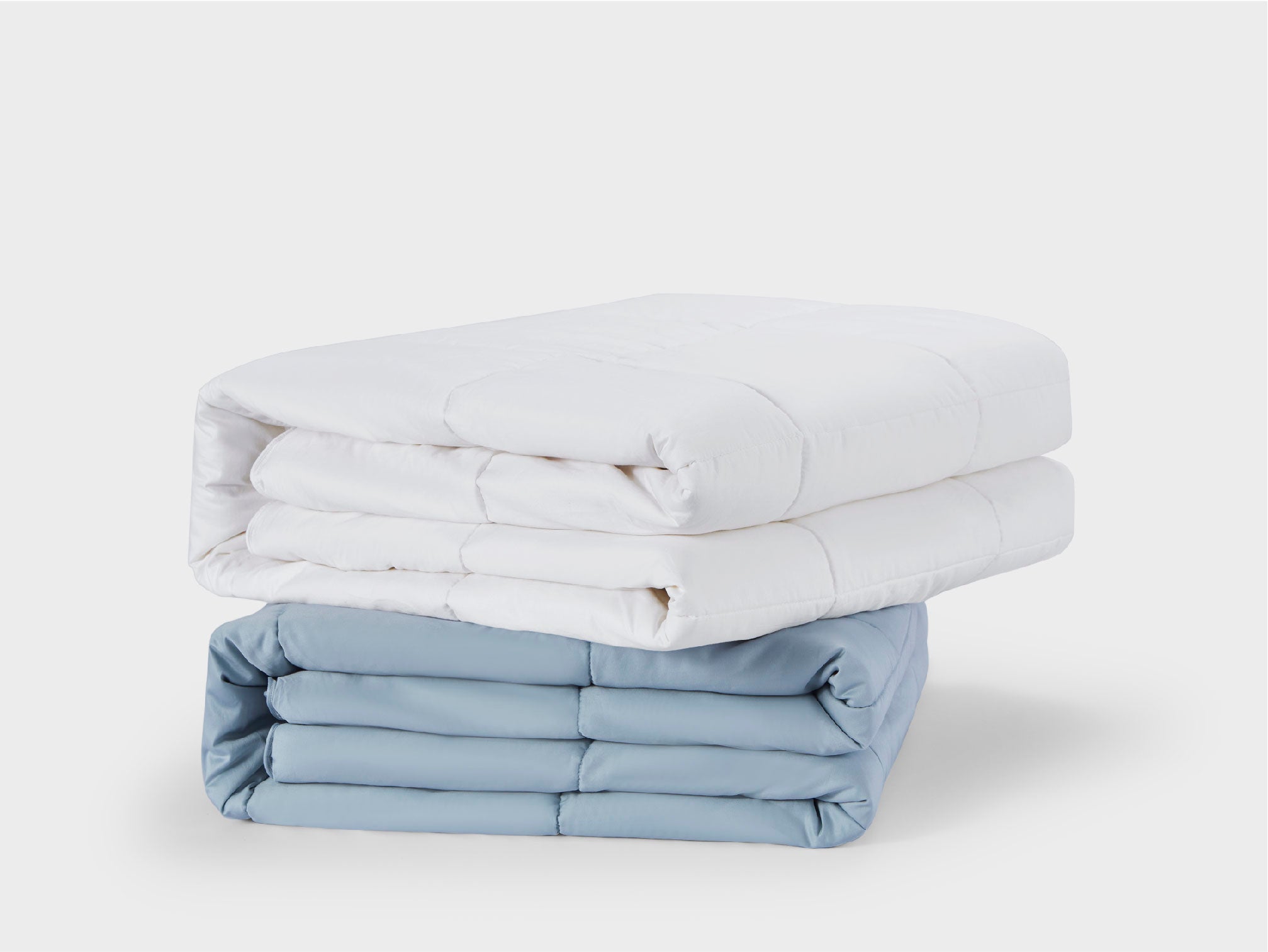
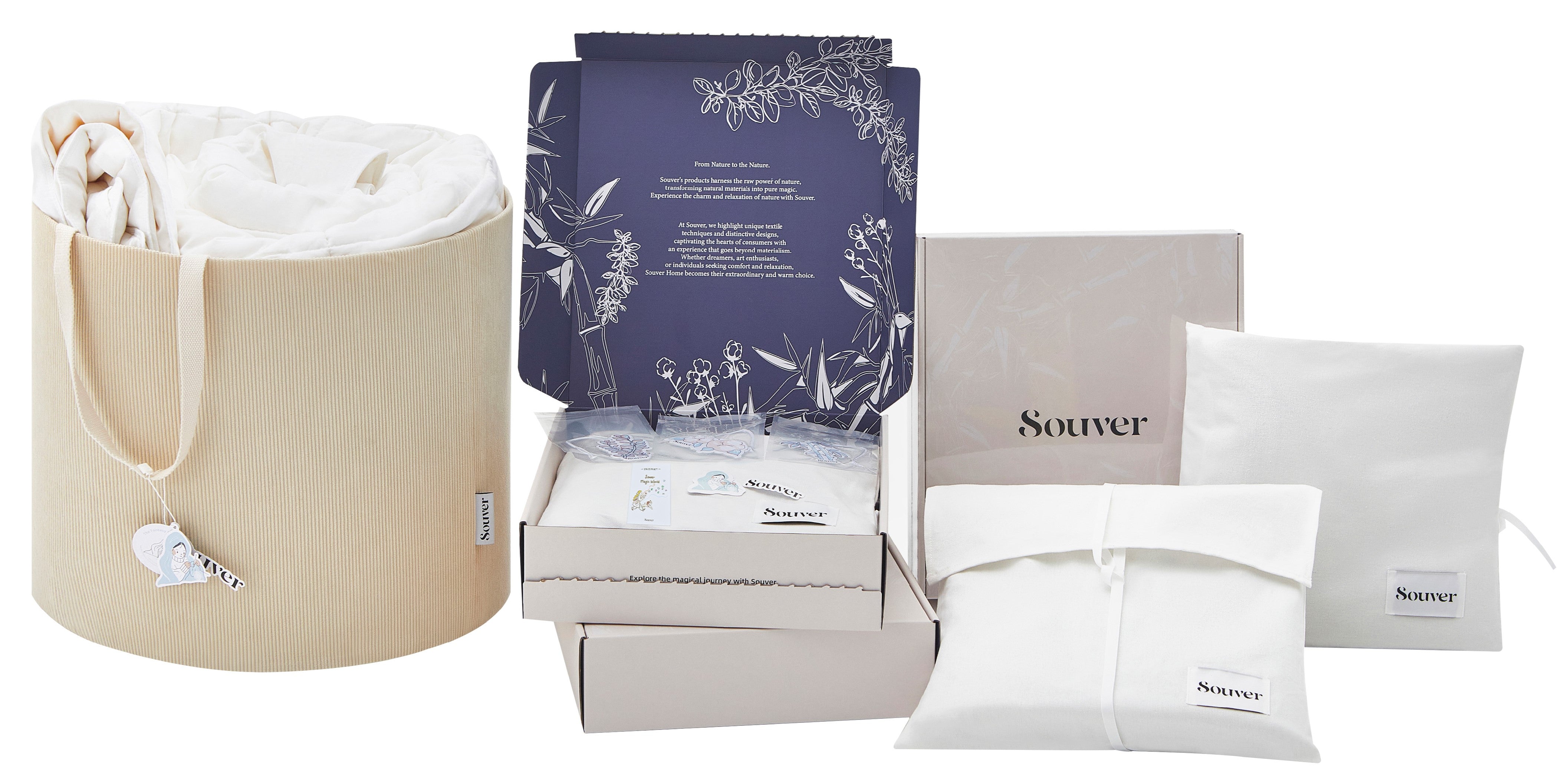
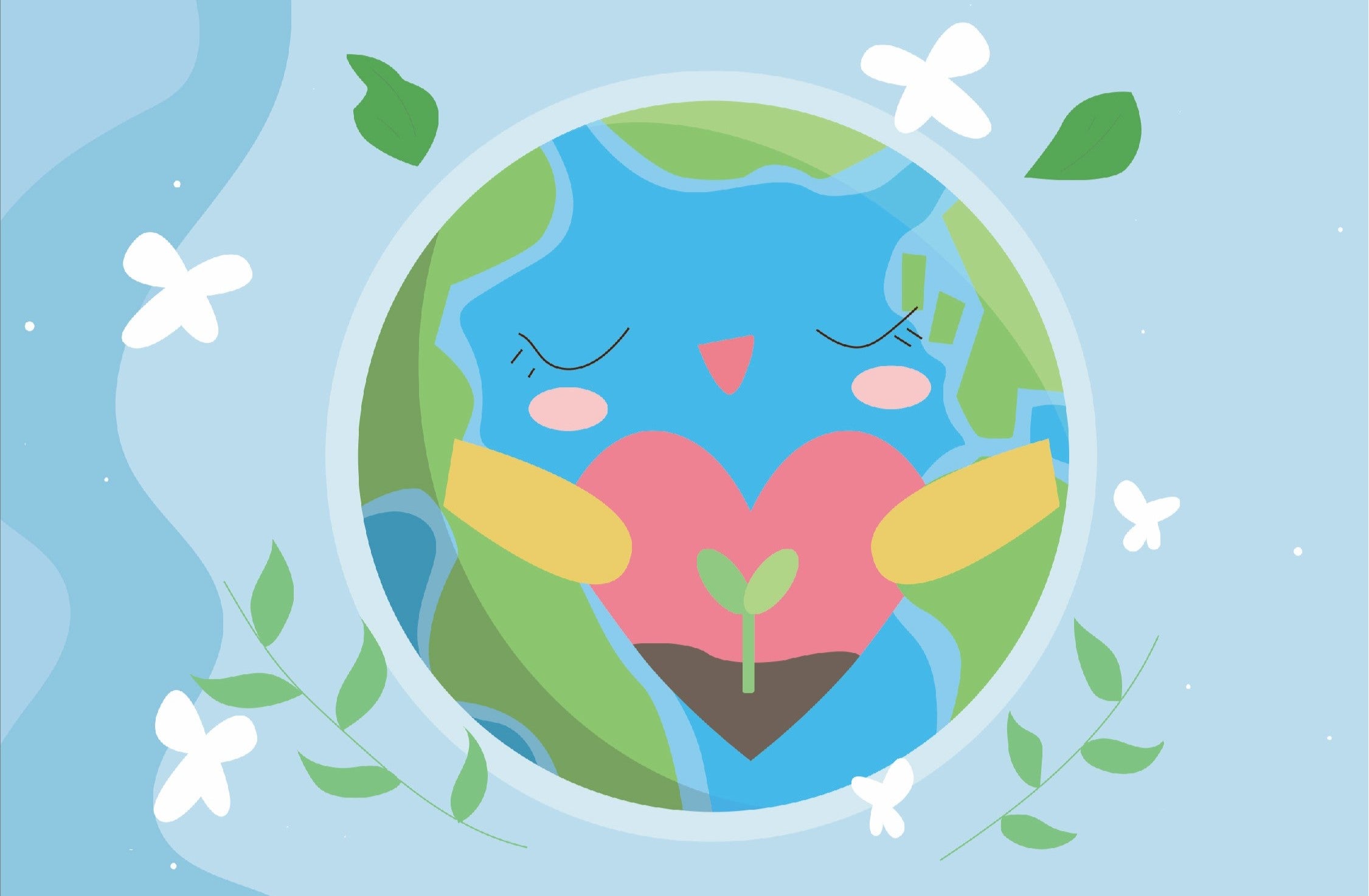

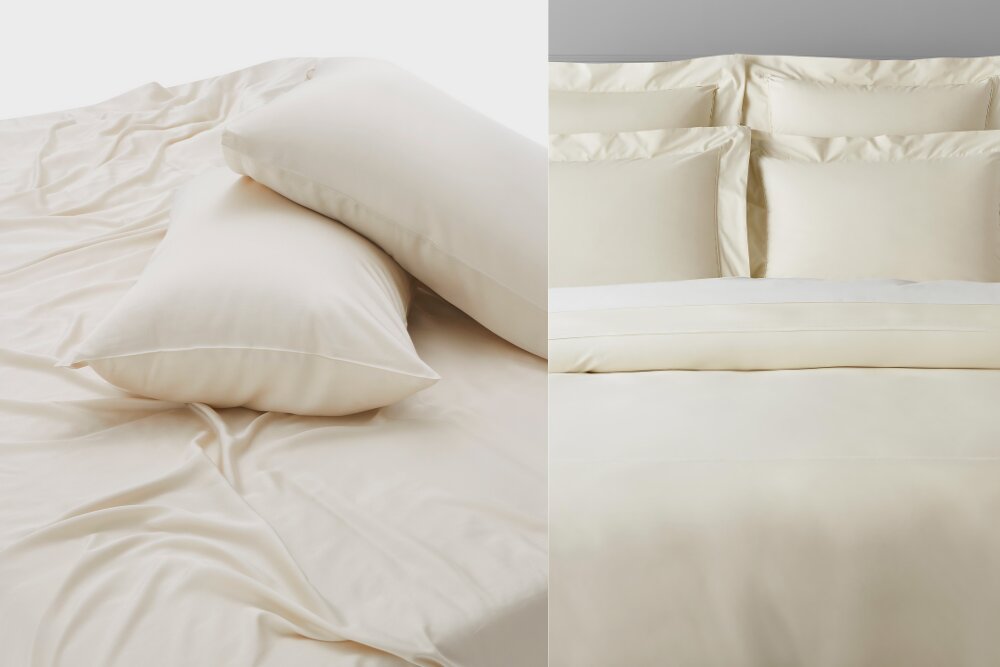

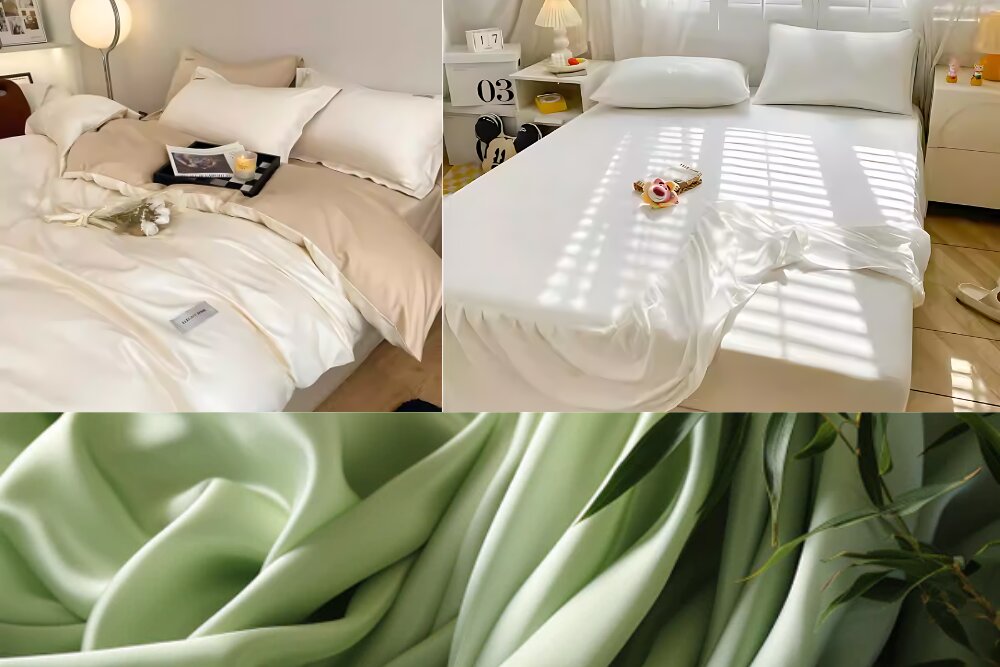
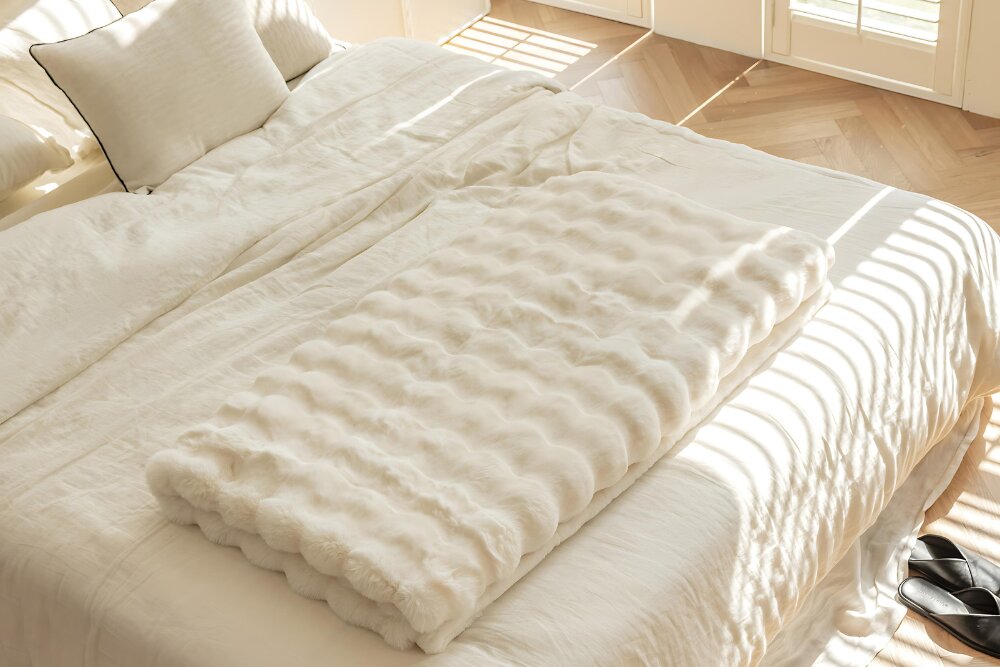
留言
此網站已受到 hCaptcha 保護,且適用 hCaptcha 隱私政策以及服務條款。